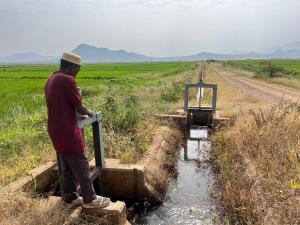Test project Pesticides and Protection Tanzania
testing out building a project
pece_annotation_1472924647
maryclare.crochiereThe main point is the lack of justice for Haiti in this rebuild process. They got huge amounts of dontions from all over the world in hopes of rebuilding the country to be better than it was. Insead, the vast majority of the money is not being spent in the right ways, and much of the spending is not being done in the most economical ways. The ways that the companies are going about rebuilding is much more wasteful than it has to be, thus using more of the money and preventing it from going as far as it could. Additionally, the UN has created a cholera epidemic in Haiti and is not being held accountable for cleaning it up.
pece_annotation_1480109626
maryclare.crochiereThe article does not directly address emergency response, however it did address medical stories as being helpful to the public to feel supported and reach out when they realized they had a psychological condition. This is important in society, because if someone can get treated for something, or at least know they have it an take precautions, then they help themselves feel more comfortable and be more successful, they reduce the strain on those around them, and they make it easier for healthcare providers, if there is ever a related issue.
pece_annotation_1473631440
Zackery.WhiteThis, like many apps, don't exactly work in rural areas in which people are unable to have access to such amenities as cellular devices.
pece_annotation_1473296561
maryclare.crochiere" For decades, those who study the determinants of disease have known that social or structural forces account for most epidemic disease. But truisms such as “poverty is the root cause of tuberculosis” have not led us very far. While we do not yet have a curative prescription for poverty, we do know how to cure TB."
"The debate about whether to focus on proximal versus distal interventions, or similar debates about how best to use scarce resources, is as old as medicine itself. But there is little compelling evidence that we must make such either/or choices: distal and proximal interventions are complementary, not competing"
" By insisting that our services be delivered equitably, even physicians who work on the distal interventions characteristic of clinical medicine have much to contribute to reducing the toll of structural violence"
pece_annotation_1480130931
maryclare.crochiereI looked up other cases of EMTs having to intervene with police, typical ways police help on medical calls, and how police are trained to deal with being spit on.
pece_annotation_1474841944
Zackery.WhiteThe article involves several disasters throughout American history. The article examines the similarities and differences between the events, their responses, and the policies enacted because of them. The 1814 burning Capitol Building, Hague Street boiler explosion, and the attack on the WTC in 2001 are examples used by the author. The article makes the argument that the investigations resulted in recommendations for change to policy to prevent future damage.




the rice irrigation scheme, Pare Valley, Tanzania